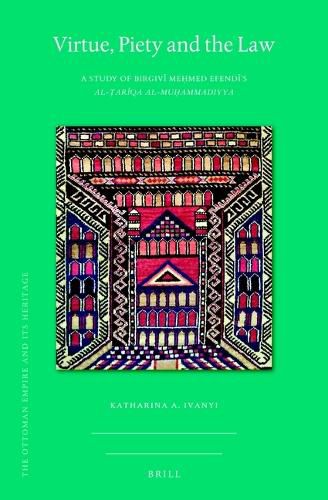Readings Newsletter
Become a Readings Member to make your shopping experience even easier.
Sign in or sign up for free!
You’re not far away from qualifying for FREE standard shipping within Australia
You’ve qualified for FREE standard shipping within Australia
The cart is loading…






In Virtue, Piety and the Law Katharina Ivanyi examines Birgivi Mehmed Efendi’s (d. 981/1573) al-Tariqa al-muhammadiyya, a major work of pietist exhortation and advice, composed by the sixteenth-century Ottoman jurist, Hadith scholar and grammarian, who would articulate a style of religiosity that had considerable reformist appeal into modern times.
Linking the cultivation of individual virtue to questions of wider political, social and economic concern, Birgivi played a significant role in the negotiation and articulation of early modern Ottoman Hanafi piety. Birgivi’s deep mistrust of the passions of the human soul led him to prescribe a regime of self-surveillance and control that was only matched in rigor by his likewise exacting interpretation of the law in matters of everyday life, as much as in state practices, such as the cash waqf, Ottoman land tenure and taxation.
$9.00 standard shipping within Australia
FREE standard shipping within Australia for orders over $100.00
Express & International shipping calculated at checkout
In Virtue, Piety and the Law Katharina Ivanyi examines Birgivi Mehmed Efendi’s (d. 981/1573) al-Tariqa al-muhammadiyya, a major work of pietist exhortation and advice, composed by the sixteenth-century Ottoman jurist, Hadith scholar and grammarian, who would articulate a style of religiosity that had considerable reformist appeal into modern times.
Linking the cultivation of individual virtue to questions of wider political, social and economic concern, Birgivi played a significant role in the negotiation and articulation of early modern Ottoman Hanafi piety. Birgivi’s deep mistrust of the passions of the human soul led him to prescribe a regime of self-surveillance and control that was only matched in rigor by his likewise exacting interpretation of the law in matters of everyday life, as much as in state practices, such as the cash waqf, Ottoman land tenure and taxation.